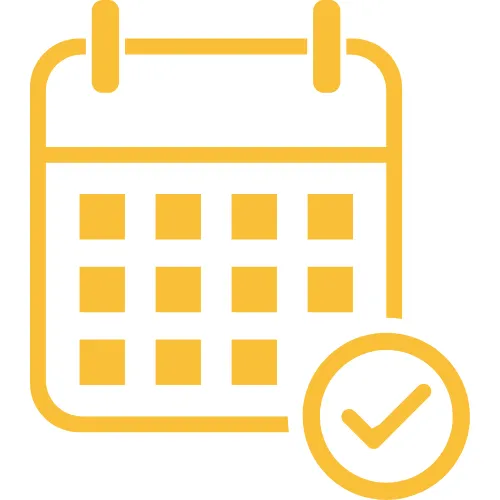Welcome to Congregate Connect LLC
Providing Support with
Care and Compassion
At Congregate Connect LLC, our goal is to enhance the quality of life for individuals with developmental disabilities. Our dedicated professional team is committed to offering opportunities to develop their skills. In our residential facility, clients will connect with others facing similar conditions. We ensure continuous guidance and support throughout their stay with us.
Welcome to Congregate Connect LLC
Providing Support with Care and Compassion
At Congregate Connect LLC, our goal is to enhance the quality of life for individuals with developmental disabilities. Our dedicated professional team is committed to offering opportunities to develop their skills. In our residential facility, clients will connect with others facing similar conditions. We ensure continuous guidance and support throughout their stay with us.
Our Mission
"We'll be there when you need us"
To provide value-driven services to persons with developmental disabilities. With dedication and commitment, we will provide compassionate care that supports each individual that we are privileged to serve.
Application of our training components will help develop the mind, body and spirit of each individual which will encourage positive choices, promote in- dependence, and provide opportunities for personal growth
Our Mission
"We'll be there when you need us"
To provide value-driven services to persons with developmental disabilities. With dedication and commitment, we will provide compassionate care that supports each individual that we are privileged to serve.
Application of our training components will help develop the mind, body and spirit of each individual which will encourage positive choices, promote in- dependence, and provide opportunities for personal growth
For inquiries about our services, scheduling appointments, and more, please contact
Congregate Connect LLC : (562) 955-3388
For inquiries about our services, scheduling appointments, and more, please contact
Congregate Connect LLC :
(562) 955-3388
Who We Are
We are a multi-faceted company that is vendored to provide a wide range of services and programs. All of which are strategically designed to improve and enhance the lives of those we serve
Who We Are
We are a multi-faceted company that is vendored to provide a wide range of services and programs. All of which are strategically designed to improve and enhance the lives of those we serve

We're thrilled to assist you.
Steps to Enroll
Rely on us to provide exceptional care and support for your loved ones.

Visit Us Today
Schedule A Tour
Allow us to show you around our facility.

We'd love to hear your feedback
Answer Our Survey
Share your thoughts on our services with us.

We're thrilled to assist you.
Steps to Enroll
Rely on us to provide exceptional care and support for your loved ones.

Visit Us Today
Schedule A Tour
Allow us to show you around our facility.

We'd love to hear your feedback
Answer Our Survey
Share your thoughts on our services with us.
Services
We Support
Parenting Support
Service Code: 108
Vendor Number: PX0759
• Parental Stress Management
• Maintaining a Household
• Navigating the School System
• Healthy Play & Developing Bonds
Independent Living Skills
Service Code: 520
Vendor Number: HX0755
• Sell-Help/Care Skills
• Social Relationship Skills
• Avoiding Personal/ Financial Crisis
• Forensic Services
Support Living Skills
Service Code: 896
Vendor Number: HX0767
• Community Awareness
• Healthy Cooking Skills
• Self-Advocacy Skills
• Specialized Services
Consumers Learn
We Care
Registered Nurse Services
Service Code: 744
Vendor Number: PX0760
• Clinical/Medical Support
Requiring an RN License
Licensed Vocational Nurse Services
Service Code: 742
Vendor Number: PX0773
• Clinical/Medical Support Requiring an LVN License
• Glucose Monitoring
• Blood Pressure Monitoring
American Sign Language Interpreter
Service Code: 642
Vendor Number: PX0775
• American Sign Language Support & Training
• Pictures Exchange Communication System
Consumers Improve
We Teach
Housing Services
Service Code: 101
Vendor Number: PX0731
• Property Rental
• Referral Assistance
• Moving Cost Assistance
Personal Assistance
Service Code: 063
Vendor Number: PX0758
• Intense Specialized Support
• Forensic/Judicial Support
• Paramedical Support
Adult Residential Facility
• CPP Consumers Okay
• Consumers Transitioning from IMD or
DD/MI Unit Okay
• Structured Living Environments
• Consumers with complex case
management issues
Consumers Succeed
Services
We Support
Parenting Support
Service Code: 108
Vendor Number: PX0759
• Parental Stress Management
• Maintaining a Household
• Navigating the School System
• Healthy Play & Developing Bonds
Independent Living Skills
Service Code: 520
Vendor Number: HX0755
• Sell-Help/Care Skills
• Social Relationship Skills
• Avoiding Personal/ Financial Crisis
• Forensic Services
Support Living Skills
Service Code: 896
Vendor Number: HX0767
• Community Awareness
• Healthy Cooking Skills
• Self-Advocacy Skills
• Specialized Services
Consumers Learn
We Care
Registered Nurse Services
Service Code: 744
Vendor Number: PX0760
• Clinical/Medical Support
Requiring an RN License
Licensed Vocational Nurse Services
Service Code: 742
Vendor Number: PX0773
• Clinical/Medical Support Requiring an LVN License
• Glucose Monitoring
• Blood Pressure Monitoring
American Sign Language Interpreter
Service Code: 642
Vendor Number: PX0775
• American Sign Language Support & Training
• Pictures Exchange Communication System
Consumers Improve
We Teach
Housing Services
Service Code: 101
Vendor Number: PX0731
• Property Rental
• Referral Assistance
• Moving Cost Assistance
Personal Assistance
Service Code: 063
Vendor Number: PX0758
• Intense Specialized Support
• Forensic/Judicial Support
• Paramedical Support
Adult Residential Facility
• CPP Consumers Okay
• Consumers Transitioning from IMD or
DD/MI Unit Okay
• Structured Living Environments
• Consumers with complex case
management issues
Consumers Succeed
Frequently Asked Questions
Do I need to live in a particular area to access services from the Counseling Center?
Congregate Connect LLC's physical office is situated in Paramount, CA. Clients also have the option to participate in therapy remotely through our virtual telehealth platform and private pay.
What are the next steps to access support?
To start the enrollment process, you can call, text, email, or visit our “contact” page. Our staff will then get in touch to gather information about your insurance, needs, and to match you with the appropriate therapist. If you have any questions, don’t hesitate to reach out!
What are the hours of operation for the Counseling Center?
Congregate Connect LLC’s Counseling Center is open Friday through Sunday from 8:00 a.m. to 6:30 p.m. Services are available by appointment only; walk-ins are not accepted.
What resources are available for individuals facing mental health challenges?
It’s okay not to be okay. Here are some helpful resources for mental health support:
988: National Suicide Prevention Hotline (click the blue button in the top right corner of this website to access the page)
855.845.7415: Peer-Run Warm Hotline (non-emergency support for mental and emotional needs in California)
Text 741.741: Connect with a trained crisis counselor for free, 24/7 crisis support via text (available in English and Spanish)
805.964.524: Domestic Violence Solutions (24-hour crisis and information hotline)
888.868.1649: ACCESS Line (24-hour crisis response and services in Santa Barbara)
805.564.3696: Standing Together to End Sexual Assault (24-hour hotline)
888.334.2777: SAFTY (Safe Alternative for Treating Youth)
800.971.0016: Institute on Aging, Friendship Line
866.488.7386 or text "START" to 678-678: The Trevor Project (suicide prevention support for LGBTQ+ individuals)
1.800.273.8255 or text 838255: Veterans Crisis Line
1.800.662.HELP (4357) (TTY 800-846-8517) or text your 5-digit ZIP code to 435748 (HELP4U): SAMHSA’s National Helpline for treatment referrals and information (available in English and Spanish)
Frequently Asked Questions
Do I need to live in a particular area to access services from the Counseling Center?
Congregate Connect LLC's physical office is situated in Paramount, CA. Clients also have the option to participate in therapy remotely through our virtual telehealth platform and private pay.
What are the next steps to access support?
To start the enrollment process, you can call, text, email, or visit our “contact” page. Our staff will then get in touch to gather information about your insurance, needs, and to match you with the appropriate therapist. If you have any questions, don’t hesitate to reach out!
What are the hours of operation for the Counseling Center?
Congregate Connect LLC’s Counseling Center is open Friday through Sunday from 8:00 a.m. to 6:30 p.m. Services are available by appointment only; walk-ins are not accepted.
What resources are available for individuals facing mental health challenges?
It’s okay not to be okay. Here are some helpful resources for mental health support:
988: National Suicide Prevention Hotline (click the blue button in the top right corner of this website to access the page)
855.845.7415: Peer-Run Warm Hotline (non-emergency support for mental and emotional needs in California)
Text 741.741: Connect with a trained crisis counselor for free, 24/7 crisis support via text (available in English and Spanish)
805.964.524: Domestic Violence Solutions (24-hour crisis and information hotline)
888.868.1649: ACCESS Line (24-hour crisis response and services in Santa Barbara)
805.564.3696: Standing Together to End Sexual Assault (24-hour hotline)
888.334.2777: SAFTY (Safe Alternative for Treating Youth)
800.971.0016: Institute on Aging, Friendship Line
866.488.7386 or text "START" to 678-678: The Trevor Project (suicide prevention support for LGBTQ+ individuals)
1.800.273.8255 or text 838255: Veterans Crisis Line
1.800.662.HELP (4357) (TTY 800-846-8517) or text your 5-digit ZIP code to 435748 (HELP4U): SAMHSA’s National Helpline for treatment referrals and information (available in English and Spanish)
Blogs

How to Advocate for Disability Rights in Your Local Community
"True advocacy for disability rights starts with listening, learning, and ensuring everyone has the opportunity to thrive."
Disability rights advocacy is a crucial part of fostering an inclusive society where everyone, regardless of their abilities, can thrive. Whether you're a person with a disability or an ally, advocating for disability rights within your local community can have a lasting and meaningful impact. In this blog post, we'll explore how you can take concrete steps to support disability rights and promote inclusivity in your community.
1. Educate Yourself About Disability Rights
The first step to becoming an effective advocate is to educate yourself about the rights of individuals with disabilities and the challenges they face. Familiarize yourself with important laws and policies, such as:
The Americans with Disabilities Act (ADA): This landmark law ensures equal access and opportunities for individuals with disabilities in public spaces, employment, transportation, and more.
Section 504 of the Rehabilitation Act: This law prohibits discrimination on the basis of disability in programs and activities that receive federal funding.
Local and state disability rights laws: In addition to federal laws, many states and cities have their own disability rights protections.
Understanding these laws will provide a strong foundation for your advocacy efforts and enable you to spot potential violations or areas for improvement within your community.

2. Build Relationships with Disability Advocates and Organizations
One of the most effective ways to support disability rights in your community is by building connections with organizations and advocates already working on these issues. Many local and national groups, such as the National Disability Rights Network (NDRN), ADAPT, and local independent living centers, can offer valuable resources and guidance.
Volunteer: Offer your time to help disability advocacy organizations with their initiatives, whether that means assisting with events, participating in awareness campaigns, or providing logistical support.
Collaborate: Work together with disability rights groups on community projects, rallies, or campaigns. Collaboration will not only strengthen your efforts but also ensure that the voices of people with disabilities are at the forefront of your advocacy work.
By partnering with these organizations, you can help amplify their voices and contribute to a larger movement for change.
3. Raise Awareness in Your Community
Raising awareness about disability rights is a powerful way to bring attention to issues that might otherwise be overlooked. Here are a few strategies to raise awareness effectively:
Host events: Organize workshops, panel discussions, or community forums to talk about disability rights and inclusion. Invite speakers who are experts on disability advocacy or individuals with disabilities to share their stories.
Use social media: Social media is a great platform for spreading awareness. Share informative articles, videos, and personal stories about disability rights. Engage with posts related to disability advocacy and encourage others to get involved.
Collaborate with local businesses: Partner with local businesses to raise awareness about accessibility issues. Advocate for better accommodations for people with disabilities, such as ramps, accessible parking spaces, and inclusive customer service.
The more people in your community understand the challenges faced by individuals with disabilities, the more likely they are to join your advocacy efforts.
4. Promote Accessibility in Public Spaces
A key part of advocating for disability rights is ensuring that public spaces are accessible to all. This includes not just physical spaces but also services and programs. Here’s how you can make a difference:
Advocate for physical accessibility: Check the accessibility of public buildings, parks, sidewalks, and transportation in your area. Ensure that they comply with the ADA and other accessibility guidelines. If you notice barriers—like lack of ramps, uneven sidewalks, or inaccessible restrooms—bring them to the attention of local government officials.
Support accessible transportation options: Many individuals with disabilities rely on public transportation to get around. Advocate for reliable and accessible transportation services in your community, such as buses with ramps and accessible taxi services.
Encourage inclusive programming: Support community programs and events that cater to people with disabilities. Whether it's a fitness class, a cultural event, or a job fair, ensure that these opportunities are available to everyone, regardless of ability.
Improving physical and programmatic accessibility is essential to making your community a more inclusive place for individuals with disabilities.
5. Push for Inclusive Education
Education is a vital component of a person's life, and advocating for inclusive education systems is a crucial step in disability rights advocacy. Here's how you can help:
Support inclusive schools: Advocate for schools to implement inclusive educational practices, where students with disabilities learn alongside their peers. This includes providing necessary accommodations and resources, such as assistive technology, specialized training for teachers, and individualized education plans (IEPs).
Promote disability awareness in schools: Encourage local schools to teach students about disability awareness and inclusion. Educational programs can foster understanding and empathy, helping to reduce stigma and stereotypes surrounding disabilities.
An inclusive education system not only benefits students with disabilities but also teaches all students the value of diversity and equity.
6. Get Involved in Local Legislation
Local government decisions have a significant impact on the lives of people with disabilities. Getting involved in local legislation and policy-making is one of the most direct ways to advocate for change. Here are some ways to get involved:
Attend city council meetings: Many cities have public meetings where community members can voice their concerns. Attend these meetings to speak out about issues affecting people with disabilities. You may also want to consider running for local office or supporting candidates who prioritize disability rights.
Write to elected officials: Contact your local representatives and express your concerns about disability rights issues. Write letters, emails, or make phone calls to raise awareness about accessibility, education, or employment rights for individuals with disabilities.
Campaign for policy change: If there is a specific issue that needs addressing, such as the lack of accessible housing or transportation, consider starting a petition or a letter-writing campaign. Rally your community to join you in pushing for local policy changes.
Getting involved in local legislation ensures that the voices of people with disabilities are heard in the decisions that affect their lives.
7. Support Employment Opportunities for People with Disabilities
People with disabilities often face challenges when it comes to finding and maintaining employment. You can advocate for inclusive employment by:
Promoting workplace inclusivity: Encourage local businesses and employers to adopt inclusive hiring practices and provide reasonable accommodations to employees with disabilities.
Support disability employment initiatives: Work with local job centers, vocational programs, and businesses to create job opportunities for people with disabilities. Encourage businesses to tap into the diverse talent pool that individuals with disabilities offer.
Advocate for fair wages: People with disabilities should receive fair wages for their work. Advocate for policies that prevent wage discrimination against individuals with disabilities.
By supporting inclusive employment, you’re not only advocating for disability rights, but you're also helping to promote economic independence and empowerment for individuals with disabilities.
8. Be an Ally and Listen to the Voices of People with Disabilities
Above all, being an advocate for disability rights means being an ally. Listen to the voices of people with disabilities and support them in their efforts to fight for their rights. Here are some ways to be an ally:
Amplify their voices: Share the stories and experiences of people with disabilities to help raise awareness about the challenges they face.
Support their leadership: When advocating for change, ensure that individuals with disabilities are leading the charge. Their lived experiences are invaluable in shaping effective advocacy efforts.
Respect autonomy: Understand that people with disabilities are the experts on their own needs and experiences. Follow their lead and respect their decisions.
Being an ally is about using your privilege and platform to support the rights of those who may not have the same opportunities to speak up.
Advocating for disability rights is a powerful way to create a more inclusive and equitable society. By educating yourself, building relationships, raising awareness, and supporting tangible changes in your community, you can make a lasting impact. Every step, no matter how small, helps to build a world where people of all abilities can live, work, and participate fully in their communities.
Remember, the work of advocacy is ongoing, but with collective effort and determination, we can ensure that disability rights are respected and upheld for generations to come.

Facebook
Instagram
Youtube
TikTok